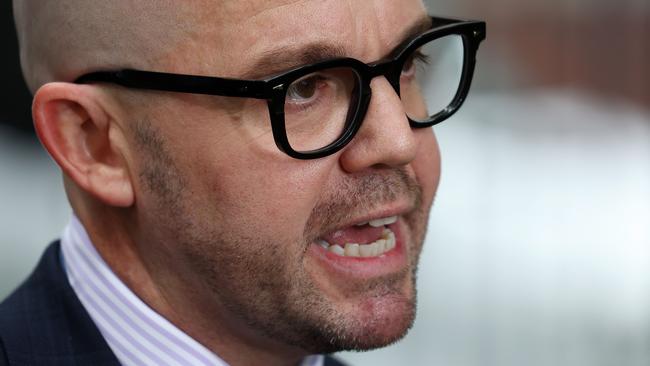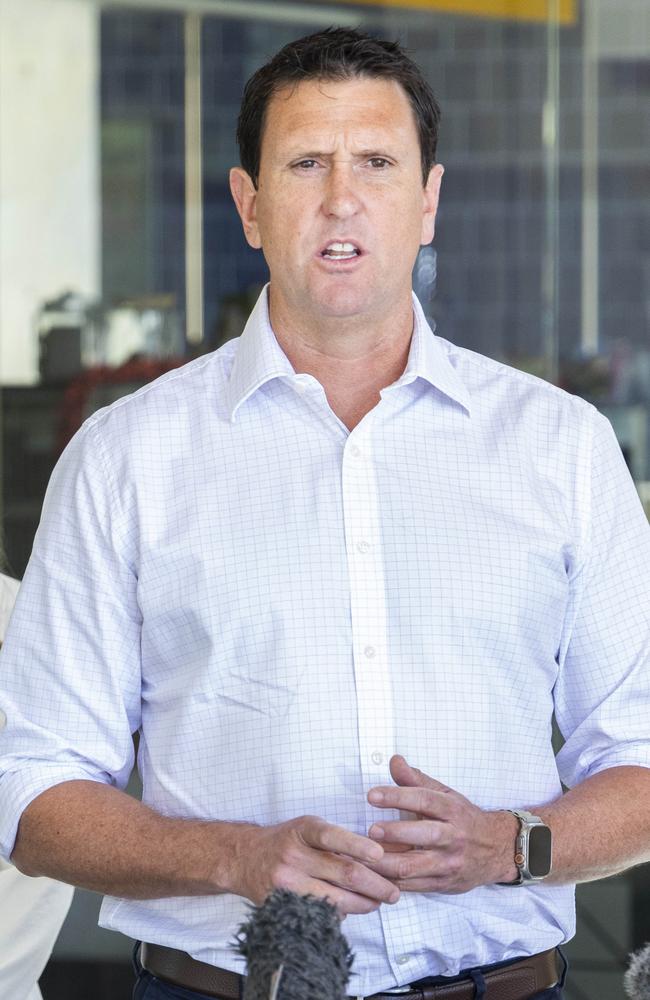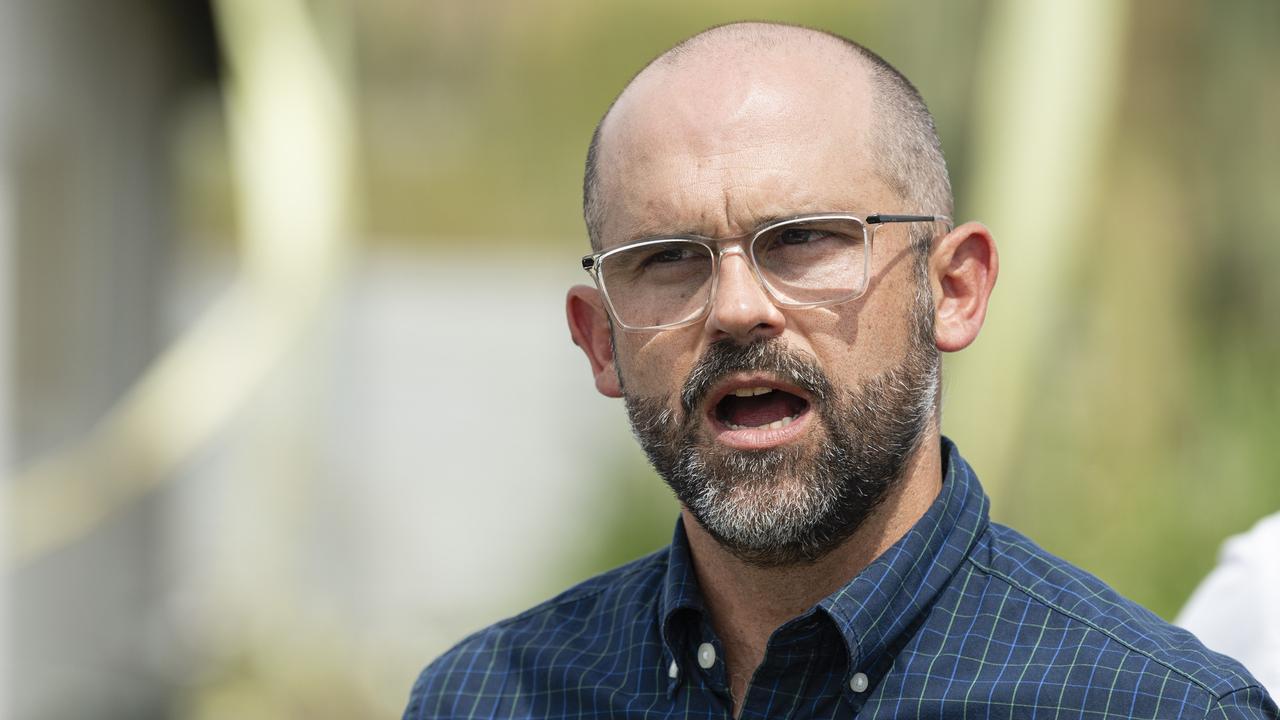Queensland Police Union seeks dedicated domestic violence commissioner
The state’s police union wants a dedicated domestic violence commissioner after officers were called to more than 200,000 incidents this year. But the new Police Minister says he’s looking at other ways to help fix the problem.

QLD Politics
Don't miss out on the headlines from QLD Politics. Followed categories will be added to My News.
The state’s police union has called for a dedicated domestic violence commissioner to help control the epidemic after officers were called to more than 200,000 incidents this year.
But the state government said there were bigger priorities on its radar to cut red tape and cumbersome paperwork for police, and compltely reform the “broken” domestic violence system.
It comes after Commissioner Steve Gollschewski told The Courier-Mail last week that domestic violence offences had increased a staggering 11 per cent and breaches 14 per cent, saying officers were “red-lining” most days.
Domestic violence advocates – including Small Steps 4 Hannah Foundation co-founder Sue Clarke – said they supported anything that would co-ordinate police and support organisations.
“If a domestic violence commissioner could help improve both prevention and intervention, we believe it would be a valuable additional tool in this ongoing battle,” Mrs Clarke said.
Queensland Police Union president Shane Prior said the domestic violence scourge was a “runaway train” and was bigger than just a police problem.
Mr Prior said it was a slippery slope if nothing was done to combat the issue.

“We need to elevate domestic and family violence, the community needs to understand that this is no longer okay,” Mr Prior said.
“Last year was 192,000 (offences), this year 200,000 (offences) – what is it next year? 210,000 (offences)?”
“This is a runaway train, we need to do something about it.”
Mr Prior said a dedicated domestic violence commissioner would oversee support services and work “hand in glove” with police to help lower their workload and develop programs to break the cycle of domestic violence.
He said the commissioner could be someone outside of the police service who had a “very strong knowledge” of the domestic violence sector.
Mr Prior said he had already floated the idea with the government, including Police Minister Dan Purdie.
Mr Purdie said another commissioner had been discussed, but stressed there needed to be bigger changes to cut paperwork and red tape on domestic violence jobs first.
“What we need to do is give our police what they’ve been asking for and reduce the associated paperwork,” Mr Purdie said.
Mr Purdie said on average, a domestic violence job took 4.2 hours to complete.
“There’s a lot of suggestions on the table … there’s no point, in my mind, having another commissioner if they are still bound by cumbersome correspondence and paperwork that is bogging police down.
“That commissioner is only going to get wrapped up in red tape.
“We need to help our police better manage that so they can get to the next domestic violence job.”
Minister for Domestic Violence Amanda Camm said she was working to fix a “broken system” through complete reform.
“I am continuing to engage with the sector and more broadly, as we commence a reform agenda to deal with the domestic and family violence service demand,” Ms Camm said.
“There was a complete lack of investment by the former government into perpetrator programs and prevention.
“A key commitment at the election, as part of our landmark domestic and family violence reforms, was to introduce a new GPS tracker program for high-risk DV offenders.”
DV Connect Director of Clinical Governance Dr Kelly Dingli said they fully backed the idea of a domestic violence commissioner.
“We would absolutely be throwing our support behind that,” Dr Dingli said.
“But it also needs to be inclusive of the sector. It is something that we would absolutely be supportive of, anything that recognised the extent of DV in the state.”



